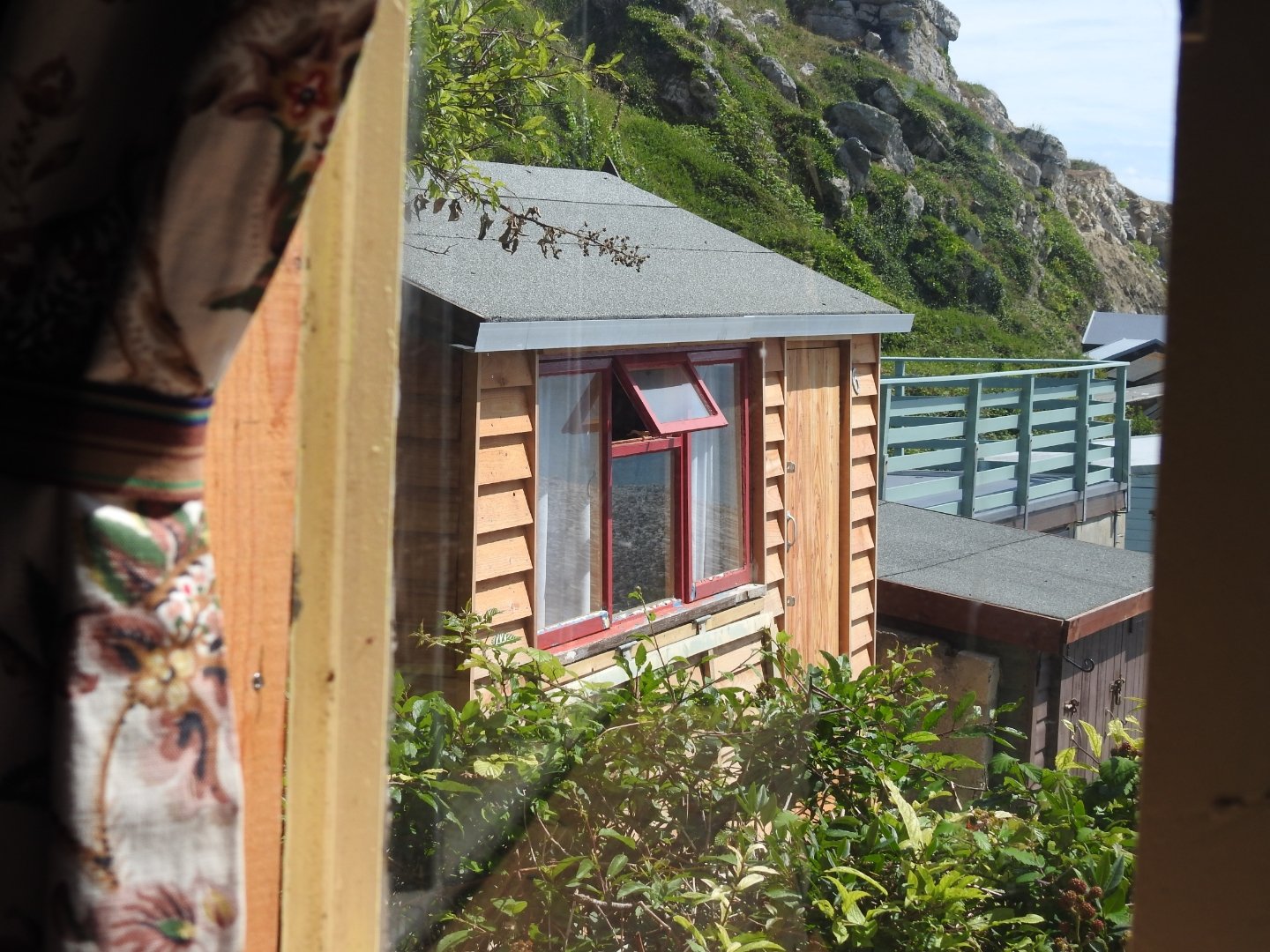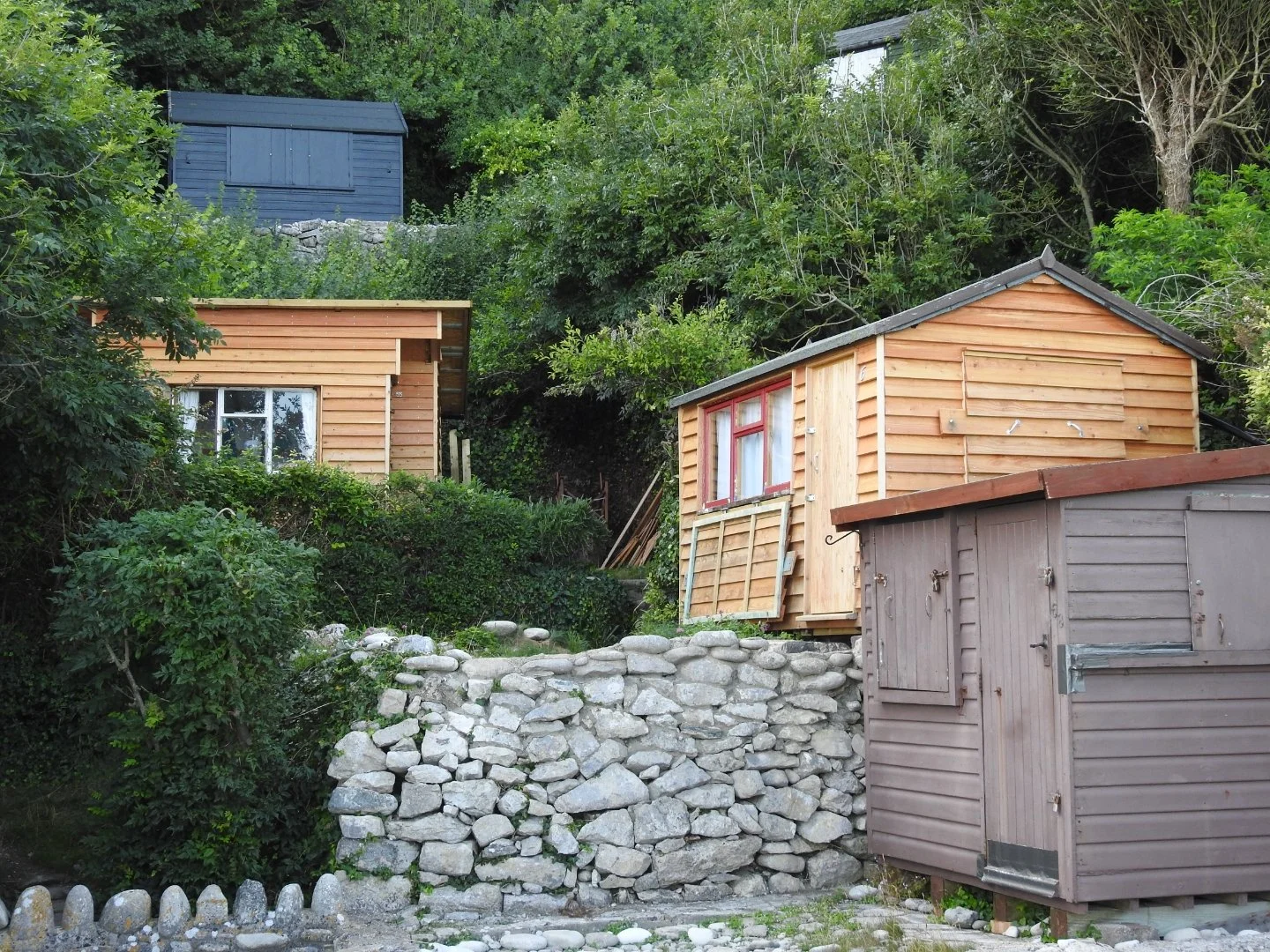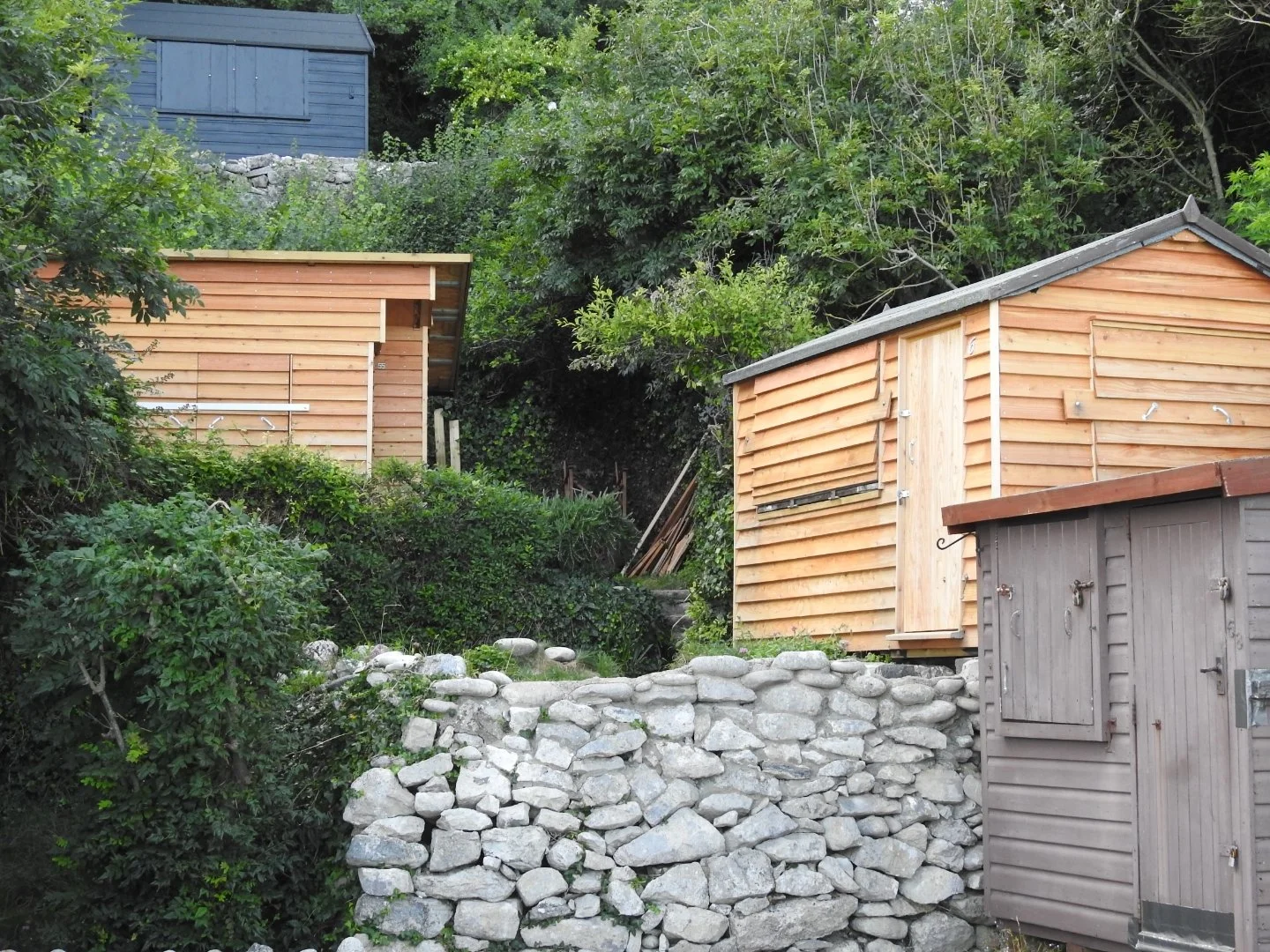Cabins on the beach, Dorset.
Photography & Words By Patrick Kerry (@PatrickOfSussex)
I’ve been working on a beach. In a cove. I have peeled back layers of bitumen felt and shrivelled cladding. Oftentimes with bare hands, casting aside any tool.
Lifting layers of landscape and layers of community along with it - by spending time on the beach. Very much in each present moment.
Listening to stories of how the beach was sand before the stone washed up. How boats were winched through sand to land the fish. The winching stopped when the stone washed up.
The huts I’ve been working on, saving them from a state of degradation were built by the fishermen before they had to fish elsewhere.
The two huts. One a kitchen hut, with a small kitchen, a dinning table and a bench that becomes a bed. One a bedroom hut, with a double bed, writing desk, some fishing rods and now a book shelf full of good reads.
Things have been moved around. Several times.
Imagination was used with what was considered dinner, when the mouse-holed kitchen became just a hole in the floor. Or when supplies were low and the supermarket seemed too far away. Other dinners were caught from shore and cooked within minutes. I won’t get fresher than that.
I peeled both huts back to their bare bones. Wrapped them both with insulation (polyurethane) and a damp proof membrane (polyethylene), before cladding them with UK grown larch. I’ve seen the larch settle and mellow. Changing colour with sun and rain.
At times it was hard holding long boards of cladding and not being able to see if either end were in alignment, as well as getting each board level.
Clamps acted as extra hands when there was room behind and fixed wood to clamp to. Each board drilled with a pilot hole, screwed in temporarily and checked at each end.
Pilot hole, countersink, stainless steel screw. Pilot hole, countersink, stainless steel screw. Pilot hole, countersink, stainless steel screw.
I counted 20 screws in one board.
Getting on and off the roof was fine, even when a pocketful of screws ran out with two more screws to go. Or when the last small square piece of OSB sheet slid off the roof and landed on the floor.
Sometimes there were people around to pass the out of reach things up to me, though not often.
Everything had to be carried down, into the cove. Down 150 steps. Every single thing. I have thanks to my friend Michelle, for the help carrying and the boosts of morale.
The heaviest items of them all being the rolls of torch of felt. 2 of them, one by one. Closely followed by the bottle of propane gas, the item that brought me most questions and confused looks, one Saturday afternoon.
The fascia’s for the roof and top boards of cladding were fixed by standing on a rickety step ladder on uneven, stony ground. I’d have fallen off and into hedge less times had I made the ground surrounding the huts the first task and not the last.
The kitchen became one of open storage, two shelves and a draw. Worktops at different heights, to hold a two-hob-one-grill stove and the other the perfect height to chop.
A curtain will cover homewares and supplies, it’s now a great place to cook.
I installed an aluminium gutter, bespoke in design. The low profile leaves room for the original windows to open, so too the new door I made with larch planks.
This hut didn’t have gutters before, the rain dripped down from the roof, rotting the window and door sills, the old shutters, old door and part of the floor.
The kitchen hut, with it’s new roof got a better clearance of overhanging roof so the walls won’t get wet and stay wet now on every downpour - unless it is that sideways rain.
After 3 months of working off-grid, with some journeys back to Sussex, I learnt to not take every single tools down to the beach and walk up to get the tools I needed, when needed. My last exit from the cove didn’t take much physical effort but mentally a part of me still is there.
I have options to go back and work and I intent to use the cove as a holiday destination so a return won’t be far away. I’ve always wanted to turn up to a place and see how I could get by.
And now I have…



